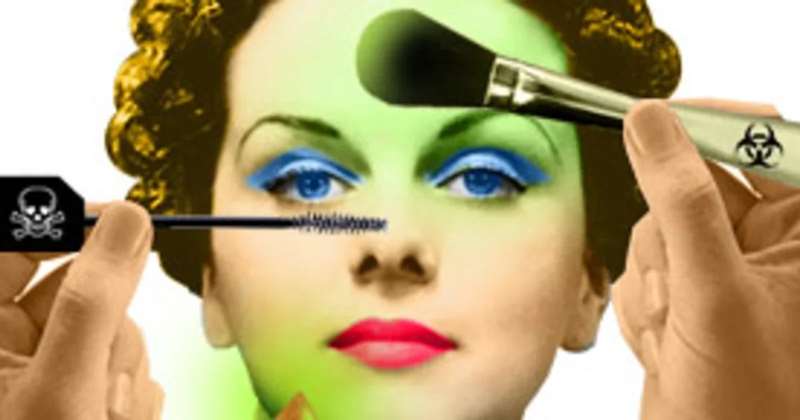Health risks in makeup cosmetics!

Health risks in makeup cosmetics!
The use of makeup cosmetics is widespread, with millions of people around the world using these products daily to enhance their appearance. However, concerns about the health risks associated with makeup cosmetics have been growing. These risks stem from the presence of potentially harmful chemicals and compounds in these products. Understanding these risks is crucial for making informed choices about cosmetic use. Below are some of the key health risks associated with makeup cosmetics:
Skin Irritation and Allergies: Many cosmetics contain fragrances, preservatives, and synthetic compounds that can cause skin irritation, allergies, and dermatitis. Reactions can range from mild redness and itching to severe allergic contact dermatitis.
Heavy Metals Contamination: Some cosmetics, especially certain eyeshadows, eyeliners, and lipsticks, may contain trace amounts of heavy metals like lead, arsenic, mercury, and cadmium. Prolonged exposure to heavy metals can lead to toxic effects on the body, including neurological and kidney damage. The levels are generally low but can accumulate over time with consistent use.
Endocrine Disruptors: Chemicals such as phthalates and parabens, commonly found in cosmetics, can act as endocrine disruptors, interfering with the body's hormone systems. These disruptions can potentially lead to reproductive issues, developmental problems, and increased risk of certain cancers.
Carcinogenic Ingredients: Certain chemicals used in cosmetics have been identified as potential carcinogens. For instance, formaldehyde-releasing preservatives used in makeup and hair care products can increase cancer risk. Another concern is the use of talcum powder in cosmetics, which has been linked to an increased risk of ovarian cancer with long-term use.
Respiratory Problems: Powder-based cosmetics, such as loose face powders, can be inhaled and cause respiratory issues. Some individuals may develop asthma or exacerbate existing respiratory conditions due to the inhalation of these fine particles.
Eye Infections: Eye makeup, including mascara, eyeliner, and eyeshadow, can harbor bacteria over time, leading to infections like conjunctivitis (pink eye) if used beyond their expiration date or shared with others.
Skin Aging: Certain makeup products, particularly those that are not removed properly, can contribute to the acceleration of skin aging. The buildup of products can lead to oxidative stress and breakdown of collagen, resulting in fine lines and wrinkles.
Mitigating these risks involves several strategies, including
Checking Ingredients: Being vigilant about the ingredients in cosmetics and avoiding products with known harmful chemicals.
Choosing Safer Products: Opting for makeup labeled as non-toxic, organic, or natural, although it's important to research these claims as they are not always regulated.
Practicing Good Hygiene: Regularly cleaning makeup tools, not sharing makeup, and discarding expired products can help reduce the risk of infections and skin irritation.
Limiting Use: Reducing the frequency of makeup use can minimize exposure to potentially harmful ingredients.
The cosmetic industry is regulated to various extents across different countries, with organizations like the U.S. Food and Drug Administration (FDA) and the European Union's European Chemicals Agency (ECHA) setting standards and guidelines. However, consumers are encouraged to educate themselves about the potential risks associated with cosmetic products and make informed decisions about their use.










পাঠকের মন্তব্য